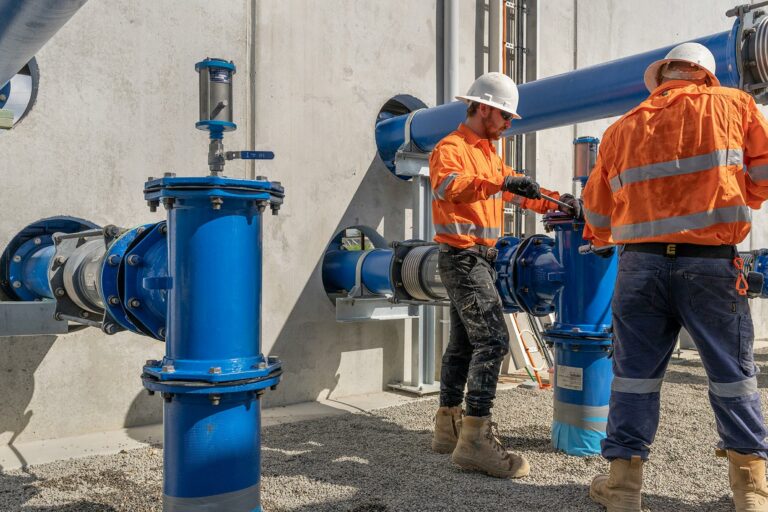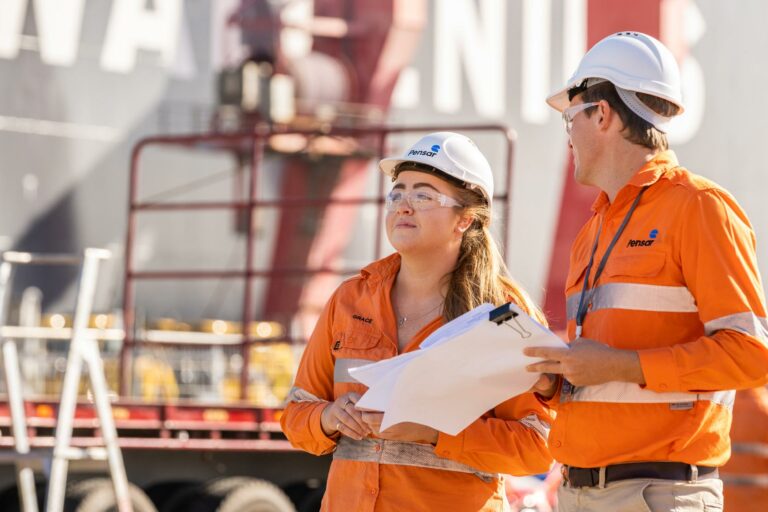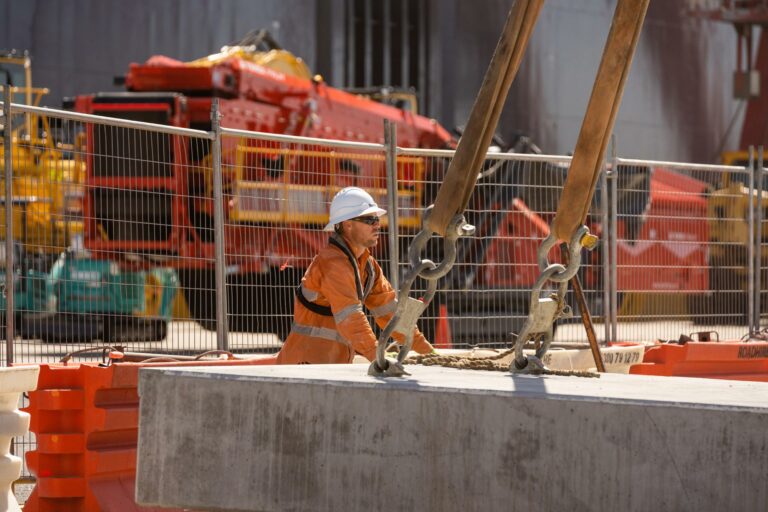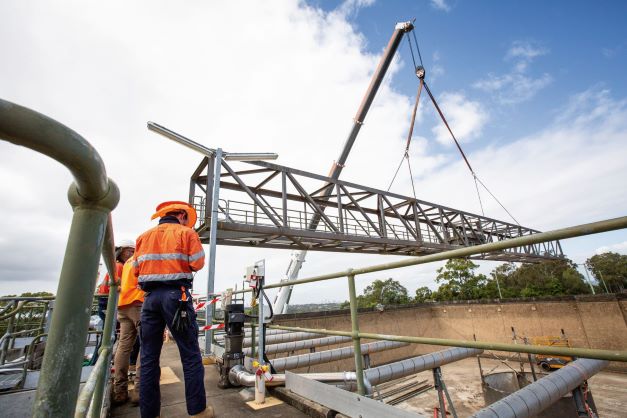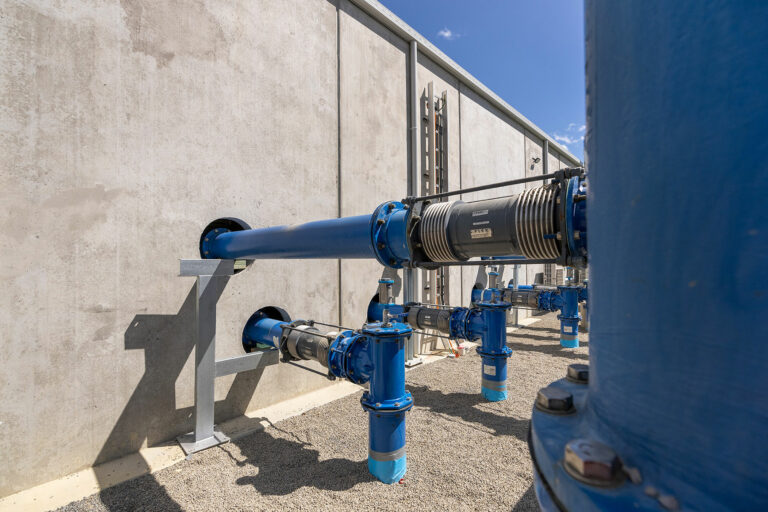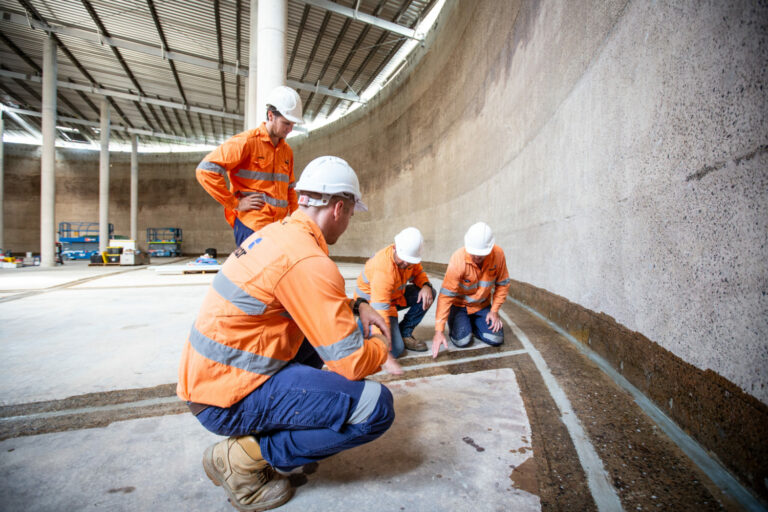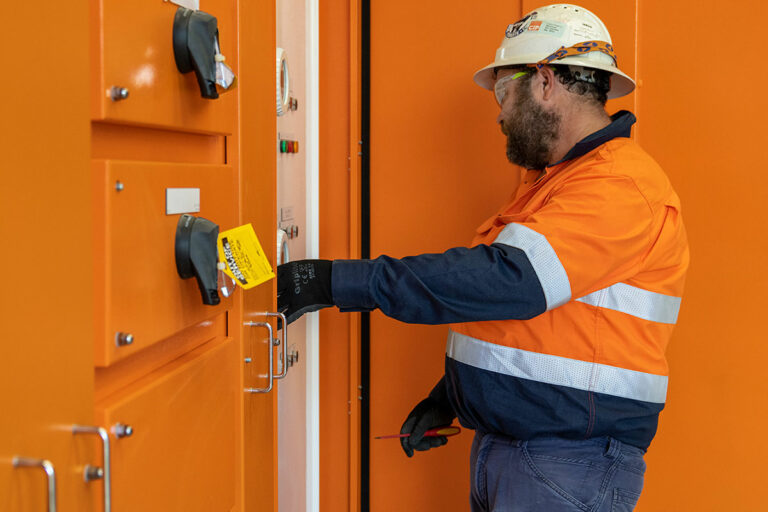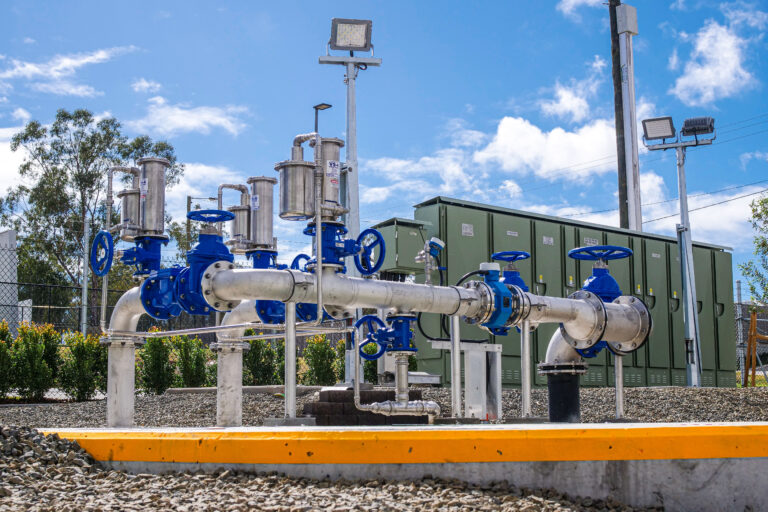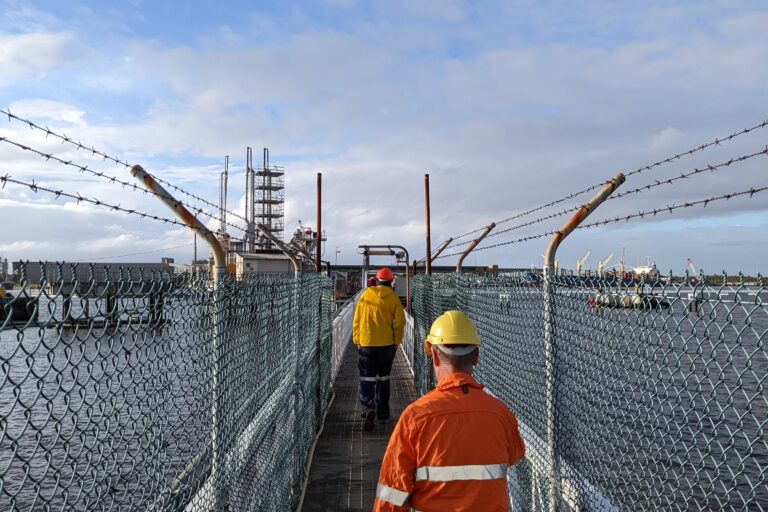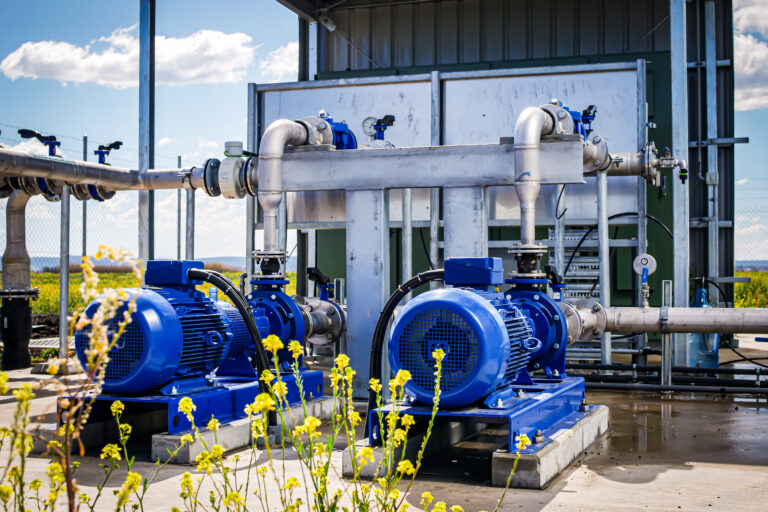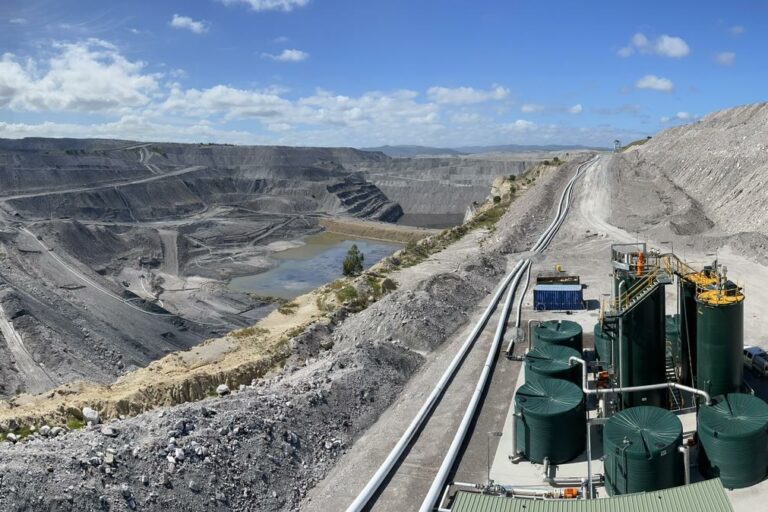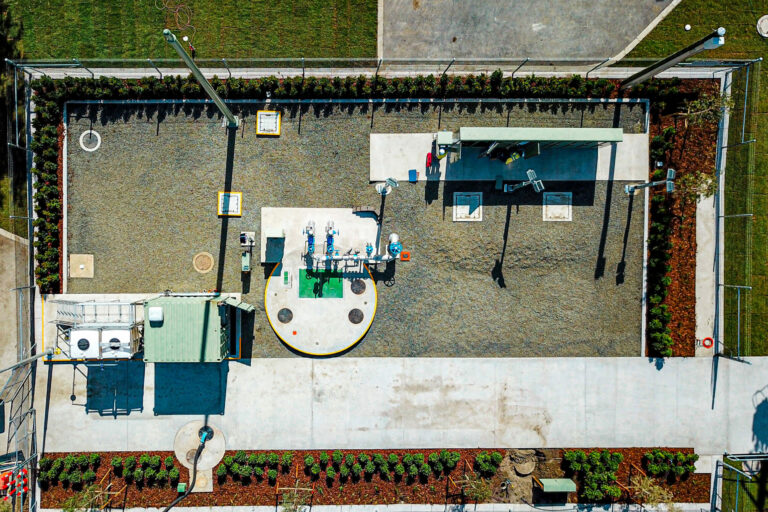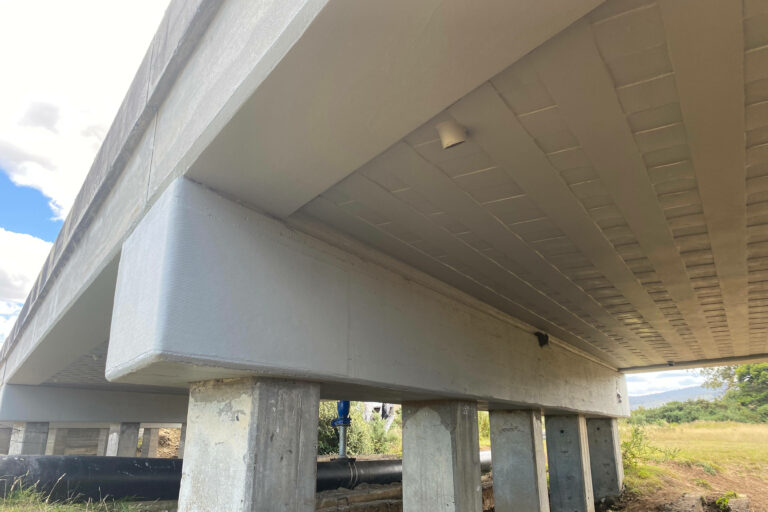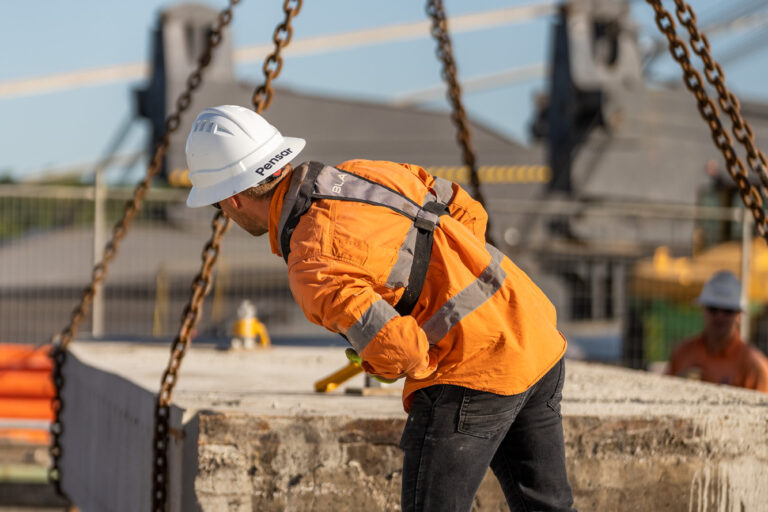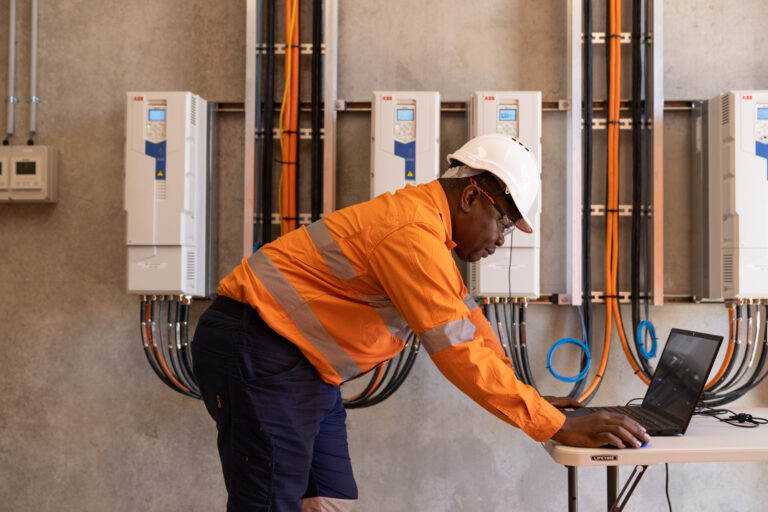Pensar’s Walgett Weir Raising and Fish Conservation Works featured in RSK’s recently released ‘Building a climate-resilient planet: the people factor’ report. The report sees 18 experts from across RSK Group share real-life examples of how their work supports communities in the midst of social, economic and environmental challenges, from the rising cost of energy to raging bushfires. Together, they demonstrate how responsible businesses of today can and must tackle some of the greatest challenges societies have ever faced. It was a privilege to contribute to an insightful collaboration of project solutions. Below is Pensar’s article featured within the report.
Engaging with local communities to safeguard their climate future in Walgett, New South Wales
Walgett is a town in northern New South Wales, Australia – a region well known for its extreme weather including heatwaves, droughts and floods, and as headlines from March this year told – wildfires. All severely impact the local community and biodiversity, with fires and floods damaging infrastructure, homes and crops, leading to significant economic losses and extreme weather disrupting diverse and endangered species, including the Murray cod, which relies on healthy river ecosystems to survive.
The impact of the climate crisis on agriculture in the region is also a concern, as it is the area’s main industry. Higher temperatures and changing rainfall patterns can lead to decreased crop yields and increased water stress, which can have significant impacts on the industry and its workforce. And this impact could be devastating if left unchecked. A 2021 report by the Australian Bureau of Agricultural and Resource Economics and Sciences found that farm profits could fall by up to 50% over the next thirty years if global greenhouse gas emissions were not significantly reduced and producers did not adapt to climate impacts.
When considering how to manage these pressures in Walgett, it is essential to consider and seriously consult the expertise of the region’s Indigenous peoples. Walgett is in the country of the Gamilaraay people and is home to over 750 people in the Gamilarwaay, Yuwaalaraay and Ngayimbaa nations. In recent years across Australia, there has been a huge drive to engage these communities in environmental projects in recognition of their knowledge and experience in managing the land and waterways. Indigenous people make up 50% of the population and have been involved in many environmental projects, including restoring degraded lands and protecting cultural heritage sites. Engaging the region’s native communities is crucial for ensuring the long-term sustainability of its natural assets and therefore its economy. By incorporating traditional knowledge and practices into environmental management, the community can work towards a more sustainable future that respects and values the unique cultural and ecological heritage of the area.
For more than 20 years, RSK company Pensar has been engineering critical infrastructure solutions to match Australia’s diverse and challenging climate. We design consolidated solutions to complex and multidisciplinary challenges in the infrastructure sector. Our teams at Pensar have been researching and formulating solutions to climate impacts, and we’ve worked with farmers and governments across Australia. In October 2019, we were commissioned by Walgett Shire Council to address the water supply issue in Walgett.
The focus was Walgett Weir, a small dam installed to control water flow for the benefit of local communities and biodiversity. We worked at the confluence of the Barwon and Namoi rivers and part of the extensive Northern Rivers catchment, a region subject to unpredictable and unseasonal weather such as extreme heat and heavy rain, creating a high-risk environment through flooding.
To better control water flow and supply in the area, the weir needed to be raised by 1 metre. The scope of work included building a 31-vertical slot fishway to enable fish to pass upstream, and a high-flow, full-width rock ramp, in addition to upstream flood mitigation work. Movement of fish through their environment is critical for their survival and for the overall health of their ecosystem. Fish provide important ecological functions and help keep waterways and their surrounding environments healthy by transporting nutrients through the water and are an important animal for the Gamilaraay Peoples, who fish from the north side of the Barwon River, downstream from Walgett Weir.
Besides the environmental advantages of the project, of equal importance is how we relate to and work in the relevant communities. We adhere to the highest industry standards and work closely with many government organisations such as the Department of Primary Industries, councils, fisheries and local Indigenous and community groups. We work within the confines of an Aboriginal Heritage Impact Permit (AHIP). Each of our projects has a dedicated cultural heritage management plan and we work closely with Indigenous peoples to make sure that the historical significance of an area is respected, and any artefacts are recovered safely. Locally engaged cultural heritage monitors perform a site walk before any construction commences. As many of the sites where we work are remote, we prioritise the communities where we work by providing local employment when possible and generating economic activity through spending locally for goods and services.
It is essential for more remote areas to have a secure water supply for people to thrive, livelihoods to flourish and to safeguard the local ecosystem. Raising the weir level by 1 m and the addition of the fishway passage contributes to alleviating drought, and the successful return of fish to previously barren parts of the river. Despite some extreme weather, the project was completed with minimal delays. Maintaining a dedicated contact for community members to engage with aided strong community and business engagement, delivering social and financial benefits to the residents. Our strategy of hiring locally generated economic activity, in addition to the economic benefits of safeguarding fish populations for agriculture, food supply and boosting tourism with waterways more accommodating to water sports and fishing.

